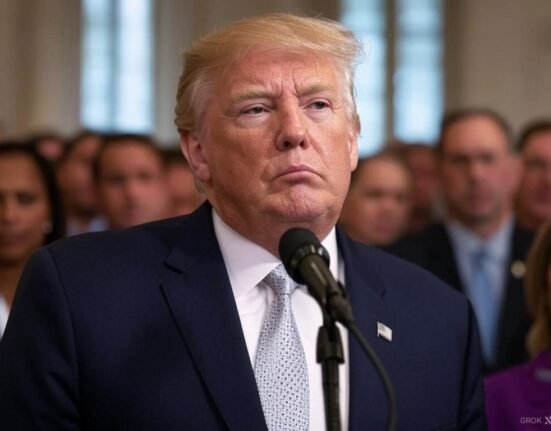The partnership between Microsoft and the Emirati artificial intelligence firm G42 marks a significant milestone in the evolution of AI technology within the UAE and the broader Middle Eastern region. This collaboration, which combines Microsoft’s advanced technological capabilities with G42’s local expertise, aims to propel the development and implementation of artificial intelligence solutions across various sectors, including healthcare, education, and public services.
Inception of this partnership can be traced back to a shared vision between the two organizations that seeks to foster innovation and drive sustainable economic growth in the UAE. Microsoft, a global leader in technology and cloud computing, brings its extensive experience in AI development, data analytics, and cloud infrastructure to the table. Meanwhile, G42, which specializes in AI and data processing, offers insights into regional needs and the cultural landscape, ensuring that solutions are tailored specifically for the Emirati context.
Strategically, the collaboration is designed to enhance the UAE’s position as a regional hub for technological innovation. This initiative aligns with the country’s national agenda, which emphasizes the importance of advanced technologies in driving economic diversification and boosting public sector efficiency. Both Microsoft and G42 are committed to leveraging AI to improve quality of life and streamline governmental processes. The partnership not only seeks to establish a cycle of continuous learning and adaptation but also aims to create a workforce proficient in artificial intelligence, fostering talent and education in this rapidly growing field.
As the partnership evolves, it is likely to have far-reaching implications, not only for the UAE but also for the global AI landscape. By fostering collaboration and knowledge exchange, Microsoft and G42 are laying the groundwork for breakthroughs in artificial intelligence that could serve as a model for other countries and regions looking to harness the potential of this transformative technology.
Details of the AI Chips Export Approval
The recent approval by the U.S. government for the export of advanced AI chips to the Microsoft facility in the United Arab Emirates is a noteworthy development in the realm of international trade and technology partnerships. This decision marks a significant step in strategic collaboration, indicating a shift towards fostering technological innovation while complying with U.S. regulatory frameworks. The approval relates specifically to high-performance semiconductor chips that are crucial for advanced artificial intelligence applications.
This export approval aligns with existing U.S. regulations that govern the transfer of sensitive technologies. The U.S. Department of Commerce has stringent laws intended to prevent advanced technologies from being utilized for purposes that may compromise national security. By allowing this export, the government emphasizes its confidence in the UAE’s commitment to responsible use of AI technologies. The Microsoft-G42 partnership also reflects a growing trend where U.S. tech companies are actively engaging with regional partners to enhance AI capabilities while adhering to regulatory standards.
Furthermore, the approval is significant within the context of international trade agreements that encourage technological exchange while maintaining oversight to safeguard sensitive technologies. The U.S. aims to ensure that these advanced AI chips will be employed in ways that align with national interests and contribute positively to economic growth in both nations. This action could serve as a blueprint for future deals between American technology firms and foreign entities, particularly within markets that are emerging as global leaders in technology innovation.
In conclusion, the export of advanced AI chips to the UAE under the Microsoft-G42 arrangement not only highlights the collaborative potential between nations but also underscores the importance of adherence to regulatory frameworks in the advancement of AI technologies. This deal may well set a precedent for subsequent technology transfers in the increasingly interconnected global landscape.
The Significance of AI Chips in Today’s Tech Landscape
In the contemporary technology sector, advanced AI chips represent a transformative force, powering a wide array of applications that are reshaping industries. These specialized semiconductors are engineered to efficiently process large datasets and execute complex algorithms required for artificial intelligence operations. As AI continues to permeate various domains such as healthcare, finance, automotive, and entertainment, the demand for high-performance AI chips has escalated, emphasizing their crucial role in technological advancement.
One of the primary drivers of the significance of AI chips lies in their ability to enhance machine learning capabilities. Unlike traditional processors, AI chips are designed to perform parallel processing, allowing them to execute multiple operations simultaneously. This capacity is instrumental for tasks such as image recognition, natural language processing, and autonomous driving, where speed and efficiency are paramount. Consequently, organizations are increasingly investing in advanced AI chips to stay competitive in the rapidly evolving technology landscape.
However, the production of these AI chips is fraught with challenges. Manufacturing such sophisticated technology requires advanced fabrication facilities and specialized knowledge, which can be cost-prohibitive. Additionally, the global semiconductor supply chain has faced disruptions due to geopolitical tensions and the COVID-19 pandemic, further complicating the availability of AI chips. As nations strive for technological supremacy, the race for advanced AI capabilities has intensified, resulting in strategic partnerships and investments aimed at bolstering chip production.
Furthermore, the competition surrounding AI capabilities has significant implications for national security and economic growth. Countries are recognizing that control over advanced AI chip technology is synonymous with having a competitive edge in the global market. Thus, the development and export of these chips are not only a business endeavor but a matter of strategic interest, influencing international relations and economic policies.
Microsoft’s Investment in G42: A Game-Changer
In a move that signals significant strategic intent within the artificial intelligence (AI) sector, Microsoft has made a substantial investment of $1.5 billion in G42, an advanced AI and cloud computing company based in the United Arab Emirates. This deal, which involves Microsoft acquiring a minority stake and securing a seat on G42’s board, represents not just a financial transaction but an opportunity for deepened collaboration and innovation in AI technologies.
By investing in G42, Microsoft is positioning itself to leverage emerging technologies and data analysis capabilities that are crucial in today’s rapidly evolving digital landscape. As AI continues to reshape industries, the partnership could accelerate the development of AI tools and applications that address diverse challenges ranging from healthcare to energy management. Microsoft’s extensive experience and resources, combined with G42’s local expertise and access to regional markets, create a synergistic alignment that is likely to yield advanced technological solutions.
This strategic investment also underlines Microsoft’s commitment to expanding its footprint beyond traditional markets while tapping into the growing demand for AI solutions in the Middle East. The region has rapidly become a hub for innovation, and by investing in G42, Microsoft can facilitate greater access to cutting-edge AI capabilities for clients in the UAE and surrounding areas. It provides G42 with not only financial resources but also access to Microsoft’s established technologies and platforms, facilitating enhanced service delivery and operational capabilities.
In essence, Microsoft’s investment in G42 is a pivotal step that empowers both entities. It grants Microsoft a foothold in the UAE’s burgeoning AI landscape while equipping G42 with the tools necessary to scale its operations effectively. Overall, this strategic partnership may represent a transformative shift in how AI technologies are developed and implemented in the region and beyond.
G42’s Vision and Development of AI Applications
G42, a prominent technology company based in the United Arab Emirates, has set a clear vision for leading the advancement of artificial intelligence (AI) across various sectors. At the core of G42’s strategy is the belief that AI possesses the potential to revolutionize industries, bolster economic growth, and enhance societal welfare. This vision is not merely aspirational; it is complemented by a strong commitment to research, innovation, and the development of cutting-edge AI applications that address real-world challenges.
The recent partnership with Microsoft significantly bolsters G42’s capabilities. This collaboration allows G42 to leverage Microsoft’s Azure cloud services, providing the necessary architecture to foster the development and deployment of AI applications. With Azure’s robust computing power and advanced tools, G42 is well-positioned to explore complex AI models and handle substantial datasets effectively. This synergy between G42 and Microsoft facilitates enhanced AI research and accelerates the transformation of AI concepts into practical solutions.
Among the various projects in G42’s AI portfolio are applications in healthcare, public safety, and smart cities. For instance, the company is pioneering AI-driven diagnostic tools that utilize predictive analytics and machine learning to enhance patient outcomes. In the realm of public safety, G42 is working on AI-powered surveillance and monitoring systems designed to bolster security and streamline emergency response efforts. Furthermore, initiatives aimed at developing smart city solutions incorporate AI to optimize urban planning, traffic management, and sustainability efforts.
In this constantly evolving technological landscape, G42’s forward-thinking approach demonstrates a deep understanding of the transformative potential of AI. By harnessing Microsoft’s advanced cloud infrastructure and expertise, G42 positions itself as a leader in the AI revolution, committed to delivering innovative applications that promote economic and social progress.
The Geopolitical Context of U.S.-UAE Tech Relations
The relationship between the United States and the United Arab Emirates (UAE) has evolved significantly over the past few decades, particularly in the realm of technology and innovation. The recent approval of advanced AI chip exports to the UAE marks a noteworthy development within this bilateral relationship, underscoring the strategic importance of technology in global geopolitics. As both nations seek to strengthen their ties, the implications extend beyond trade, affecting regional dynamics and international competition.
Historically, the UAE has positioned itself as a key ally of the U.S. in the Middle East, often striving to balance its relations with other powers such as China and Russia. The introduction of advanced technology, particularly artificial intelligence, into this partnership not only enhances economic opportunities but also fosters greater security collaboration. The U.S. benefits by solidifying its influence and presence in a critical region, while the UAE accelerates its own technological ambitions as part of its Vision 2021 initiative aimed at diversifying the economy and reducing dependence on oil.
This tech cooperation has profound implications for regional stability, especially as nations compete for access to cutting-edge technologies. Other Middle Eastern countries may view the Microsoft-G42 deal as a signal to enhance their own tech capabilities or forge partnerships that could counterbalance the U.S.-UAE alliance. Furthermore, the geopolitical chessboard extends far beyond the Middle East, with nations like China rapidly advancing their own technological pursuits. The U.S. must remain vigilant to mitigate any threats posed by these emerging powers, which underscores the significance of its partnership with the UAE.
Moreover, technology serves as an essential component of contemporary diplomacy. The U.S.-UAE relationship exemplifies how technological investments can facilitate deeper ties, encourage collaborative initiatives in cybersecurity, and advance shared defense goals. As both countries navigate the complexities of an increasingly interconnected world, the development of advanced technologies will remain central to their strategic objectives.
Potential Risks and Ethical Considerations
The exportation of advanced AI chips, particularly in cases like the recent Microsoft-G42 deal with the UAE, introduces a variety of potential risks and ethical considerations that merit careful examination. One major concern is data privacy. As AI systems become more pervasive, they often handle vast amounts of sensitive data, making robust protective measures paramount. Ensuring that the technologies utilized comply with international privacy standards can be challenging, especially when the operational practices of recipient countries vary significantly. Failure to uphold these standards could lead to unauthorized data access or breaches, fundamentally impinging on individual privacy rights.
Moreover, the possibility of misuse of AI applications is another critical factor. Advanced AI chips possess the capacity to conduct tasks ranging from data analysis to automation of decision-making processes. However, this versatility also opens the door for these systems to be employed in harmful ways, such as surveillance or other forms of oppression. The risk escalates if the technology falls into the hands of actors who may deploy it against vulnerable populations. The balance between technological advancement and responsible usage is precarious and requires thorough oversight to mitigate potential harms.
Regulatory challenges further complicate this landscape. The rapid evolution of AI technology often outpaces existing legal frameworks, making it difficult for governing bodies to implement effective regulations. Jurisdictions differ in how they interpret laws governing AI, which creates a patchwork of compliance requirements. This divergence can hinder responsible collaboration between nations and organizations, leaving vulnerabilities that can be exploited. As stakeholders engage in these arrangements, an ongoing dialogue surrounding ethical considerations and regulatory frameworks must take place to address these concerns proactively, ultimately fostering a more secure and equitable global AI landscape.
Future Prospects for AI in the UAE
The recent partnership between Microsoft and G42 signifies a robust commitment to advancing artificial intelligence (AI) technologies in the United Arab Emirates (UAE). This collaboration is poised to facilitate significant investment in AI infrastructure, research, and development, thereby enhancing the UAE’s standing in the global AI arena. The agreement not only reveals the UAE’s aspiration to become a leading hub for AI innovation but also reflects a strategic vision aligned with national objectives outlined in the UAE’s Artificial Intelligence Strategy 2031.
One of the pivotal aspects of this partnership is the emphasis on leveraging advanced AI chips that will enable more complex processing capabilities. As a result, organizations in the UAE can expect to develop and deploy sophisticated machine learning algorithms and applications that cater to diverse sectors such as healthcare, finance, and education. This technological evolution will likely catalyze a surge in AI-driven startups as local entrepreneurs gain access to cutting-edge tools and resources, fostering a culture of innovation.
Moreover, potential advancements in AI ethics and governance are anticipated as the UAE engages in global dialogues that address the challenges of AI integration. By establishing frameworks for responsible AI deployment, the UAE can position itself as a beacon of excellence in ethical AI practices, attracting international partnerships and investments. The local government’s proactive stance on regulatory measures will play a crucial role in shaping a favorable ecosystem for AI advancement.
Furthermore, as multinational corporations increase their investments in the region, the UAE is set to benefit from knowledge transfer and skill acquisition. Educational institutions are likely to align curricula with emerging AI technologies, ensuring a skilled workforce is ready for future demands. Overall, the Microsoft-G42 partnership heralds a transformative era for AI in the UAE, positioning it as a pivotal player in the global tech landscape for years to come.
Conclusion: The Road Ahead for AI Collaboration
The recent developments surrounding the export of advanced AI chips from the U.S. to the UAE, particularly through the collaboration between Microsoft and G42, signify a pivotal shift in the landscape of artificial intelligence technology. This partnership is not only an indication of the evolving business milieu but also underscores the burgeoning importance of international tech collaborations in a globalized economy. With the U.S. permitting these exports, it opens new avenues for the implementation of sophisticated AI solutions, enabling partners to harness advanced machine learning capabilities that were previously constrained by regulatory limitations.
The Microsoft-G42 deal is integral as it illustrates a strategic alignment between established tech giants and regional powerhouses in the UAE. This partnership is expected to lead to enhanced innovation, knowledge exchange, and the development of cutting-edge applications tailored to specific needs within the UAE and beyond. As AI continues to permeate various sectors, from healthcare to finance, the roles of companies like Microsoft and G42 will be crucial in fostering responsible growth and deploying AI technologies effectively.
Furthermore, this collaboration epitomizes the necessity of cultivating international relationships in technology amidst broader geopolitical concerns. The interdependencies formed through such partnerships can address critical issues such as cybersecurity, ethical AI usage, and creating regulatory frameworks that govern AI development and deployment. The export of advanced AI chips to the UAE may, therefore, serve as a beacon for other nations considering similar cross-border collaborations.
As we look ahead, it is essential to recognize that the road to effective AI integration is laid with opportunities that require careful navigation. The partnerships forged today not only position nations for technological advancement but also engender mutual trust and cooperation among global players. The significance of initiatives like the Microsoft-G42 deal cannot be overstated, as they pave the way for a more interconnected and innovative future in artificial intelligence.













Leave feedback about this